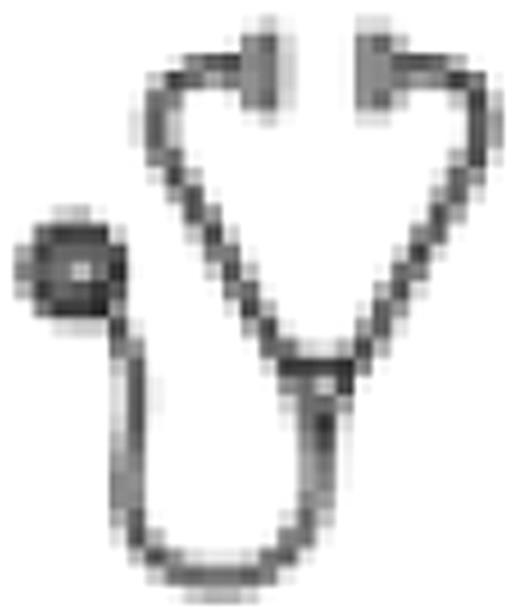Abstract
Autologous stem cell transplantation (ASCT) for multiple myeloma (MM) offers a unique setting to explore the role of immunotherapeutic strategies in eradicating malignancy. Patients achieve tumor cytoreduction following ASCT, however ultimately experience disease relapse from a persistent reservoir of chemotherapy resistant disease. Cancer vaccines that educate host immunity to target myeloma cells can be used to eradicate residual disease following ASCT. Our group has developed a cancer vaccine whereby dendritic cells (DCs) are fused with autologous tumor cells. DC/MM fusion cells present a broad array of tumor antigens in the context of DC derived costimulatory molecules. We are conducting a clinical trial in which patients with MM undergo ASCT followed by post-transplant vaccination with 3 doses of DC/MM fusions (cohort 1). A second cohort of patients receive an additional vaccination prior to stem cell collection in order to induce the expansion of tumor specific lymphocytes that are collected in the stem cell product (cohort 2). The infusion of educated lymphocytes provides a platform for subsequent post-transplant vaccination. To date, 26 patients have been enrolled in cohort 1 and 9 patient have been enrolled in cohort 2. Adherent mononuclear cells were isolated from leukapheresis collections and cultured with GM-CSF and IL-4 for 5-7 days, then exposed to TNFα for 48-72 hours to generate mature DCs. DCs expressed co-stimulatory (mean CD86 70%) and maturation markers (mean CD83 55%). MM cells were isolated from bone marrow and were identified by their expression of CD38 or CD138. DC and MM cells were co-cultured with PEG and fusion cells were quantified by determining the percentage of cells that co-express unique DC and myeloma antigens. Mean yield of the DC and myeloma preparations was 1.72 × 108 and 6.6 × 107 cells, respectively. Mean fusion efficiency was 38% and the mean cell dose generated was 3.6 × 106 fusion cells. Mean viability of the DC, myeloma, and fusion preparations was 87%, 87%, and 78%, respectively. As a measure of their potency as antigen presenting cells, fusion cells potently stimulated allogeneic T cell proliferation in vitro. Mean stimulation indexes were 13, 60, and 32 for T cells stimulated by myeloma cells, DCs, and fusion cells at an APC: T cell ratio of 1:10. Adverse events judged to be potentially vaccine related were mild, and included injection site reactions, pruritis, myalgias, fever, chills, and tachycardia. ASCT was associated with suppression of measures of cellular immunity. Circulating CD4 cells were depressed in the post-transplant period and CD4:CD8 ratios remained inverted for greater than 10 months. Similarly, 65% of patients had a positive DTH response to candida antigen prior to transplant while only 21% demonstrated a positive response in the early post-transplant period. T cell response to PHA mitogen was transiently depressed post-transplant with mean stimulation indexes of 79, 10, 26, 36, and 63 prior to transplant, 1, 2, 3, and 6 months post-transplant, respectively. Consistent with these findings, in vitro T cell responses to tetanus toxoid were blunted in the post-transplant period. In contrast, a significant increase in circulating tumor reactive lymphocytes was noted, as determined by T cell expression of IFN by CD4 and CD8 cells following ex vivo coculture with autologous myeloma cell lysate (Mean percentage of tumor reactive CD8 cells was 1 and 7.7 pre and post-transplant, respectively; mean percentage of CD4 cells was 0.9 and 3.2). A further amplification of tumor reactive lymphocytes was seen with vaccination in a subset of patients (mean percentage of CD4 and CD8 tumor reactive T cells was 6.4 and 13.4, respectively). In the post-transplant period, regulatory T cells fell to minimal levels. To date, 23 patients have completed follow up and were evaluable for clinical response. 3 patients achieved CR at 1 month following ASCT. Of note, an additional 7 patients obtained a CR following completion of vaccinations, suggesting a role for post-transplant immunotherapy in mediating elimination of disease. In summary, fusion cell vaccination in conjunction with ASCT was well tolerated, stimulated anti-tumor immunity and was associated with the induction of post-transplant complete response.
Richardson:Millenium (Research Funding and Advisory Board), Celgene, Keryx, BMS, Merck, Johnson and Johnson (All Advisory Board): Membership on an entity's Board of Directors or advisory committees, Research Funding. Anderson:Millenium (Research Funding and Advisory Board: Membership on an entity's Board of Directors or advisory committees, Research Funding; Celgene: Membership on an entity's Board of Directors or advisory committees; Keryx: Membership on an entity's Board of Directors or advisory committees; BMS: Membership on an entity's Board of Directors or advisory committees; Merck: Membership on an entity's Board of Directors or advisory committees; Johnson and Johnson: Membership on an entity's Board of Directors or advisory committees.

This icon denotes an abstract that is clinically relevant.
Author notes
Asterisk with author names denotes non-ASH members.

